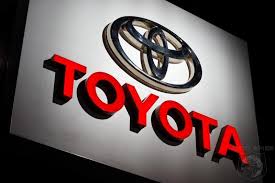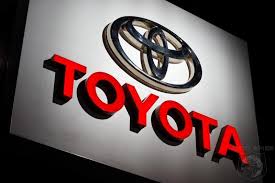
Toyota is going to assist Uber in the development of and accelerate the deployment of self-driving vehicles through an investment of $500 million in the ride hailing company, the Japanese auto maker announced on Monday.
According to the working plan drawn up by the companies, Toyota Sienna minivans would be retrofitted with autonomous technology by Uber and start to test drive the vehicles on the road in 2021.
Toyota stand to gain an important partnership in an area of automobiles that is fast growing. The investment announcement by Toyota happened on the same day that four suppliers of the Japanese company struck up a partnership for development of some of the software that are required for self-driving vehicles.
"This agreement and investment marks an important milestone in our transformation to a mobility company," Shigeki Tomoyama, the president of Toyota Connected Company, said in a statement.
Many analysts see a future where mobility as a service would replace car ownership and many of the top global automakers and tech companies are in a rush to become the early bird in this segment. There are a growing number of partnerships between automakers and ride hailing companies because car makers accept they know little about ridesharing and companies like Uber acknowledge that it is difficult to make a car.
Similar partnerships have bene been forged other tech and auto companies. For example, there is a partnership between Waymo and Chrysler and Jaguar Land Rover where the tech company purchases cars form the car manufacturers.
"We're seeing marriages of companies of complementary abilities," said Brian Collie of Boston Consulting Group. "Partnerships are quite necessary and create value toward bringing mobility as a service to the market faster."
Uber being the leader in the global ride hailing industry has an edge because it has a ready audience for self-driving vehicles. And that ready market of Uber can be taken advantage of by Toyota self-driving cars through its app – a ride sharing app used by millions across the world.
Uber and Toyota already have a partnership. Announcement of e-Palette – a concept for autonomous vehicles which could be put to use for a range of services from pizza delivery to ridesharing, was made during the International Consumer Electronics Show in January by the two companies.
This however is not the first attempt by Toyota to get into the self-driving space. Investment of $1 billion in the Toyota Research Institute artificial intelligence lab was announced by the company in 2015. The Uber partnership would accelerate efforts to deliver autonomous technology said the Institute CEO Gill Pratt in a statement on Monday.
The costs of running a self-driving car program are high and hence the cash infusion would be an advantage for Uber. The engineers specializing in this technology are scarce to find and therefore command huge salaries. Additional costs involve maintaining a large fleet of test vehicles.
(Source:www.money.cnn.com)
According to the working plan drawn up by the companies, Toyota Sienna minivans would be retrofitted with autonomous technology by Uber and start to test drive the vehicles on the road in 2021.
Toyota stand to gain an important partnership in an area of automobiles that is fast growing. The investment announcement by Toyota happened on the same day that four suppliers of the Japanese company struck up a partnership for development of some of the software that are required for self-driving vehicles.
"This agreement and investment marks an important milestone in our transformation to a mobility company," Shigeki Tomoyama, the president of Toyota Connected Company, said in a statement.
Many analysts see a future where mobility as a service would replace car ownership and many of the top global automakers and tech companies are in a rush to become the early bird in this segment. There are a growing number of partnerships between automakers and ride hailing companies because car makers accept they know little about ridesharing and companies like Uber acknowledge that it is difficult to make a car.
Similar partnerships have bene been forged other tech and auto companies. For example, there is a partnership between Waymo and Chrysler and Jaguar Land Rover where the tech company purchases cars form the car manufacturers.
"We're seeing marriages of companies of complementary abilities," said Brian Collie of Boston Consulting Group. "Partnerships are quite necessary and create value toward bringing mobility as a service to the market faster."
Uber being the leader in the global ride hailing industry has an edge because it has a ready audience for self-driving vehicles. And that ready market of Uber can be taken advantage of by Toyota self-driving cars through its app – a ride sharing app used by millions across the world.
Uber and Toyota already have a partnership. Announcement of e-Palette – a concept for autonomous vehicles which could be put to use for a range of services from pizza delivery to ridesharing, was made during the International Consumer Electronics Show in January by the two companies.
This however is not the first attempt by Toyota to get into the self-driving space. Investment of $1 billion in the Toyota Research Institute artificial intelligence lab was announced by the company in 2015. The Uber partnership would accelerate efforts to deliver autonomous technology said the Institute CEO Gill Pratt in a statement on Monday.
The costs of running a self-driving car program are high and hence the cash infusion would be an advantage for Uber. The engineers specializing in this technology are scarce to find and therefore command huge salaries. Additional costs involve maintaining a large fleet of test vehicles.
(Source:www.money.cnn.com)














